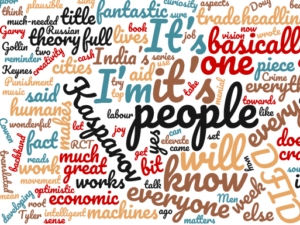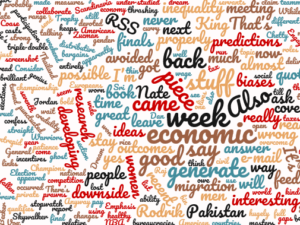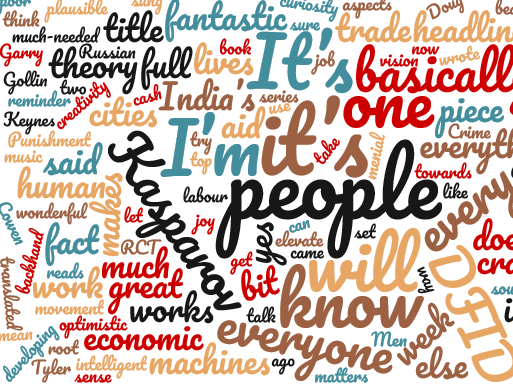Hi all,
The last time I watched Toby Roland-Jones play cricket, he took a hat trick with the final ball of Middlesex’s County season to win them the Championship against Yorkshire. His partner was screaming her head off in support a few rows in front of me, and I blame her (rather than the prosecco, beer and associated libations) for my splitting headache the next day. Anyway, it seems like he has something of a golden arm, and is currently bowling with an economy of under 2 and a wicket-taking average of less than 5 in Test cricket (n=less than 1). Regression to the mean be damned.
- I’ve been trying to talk people out of technopessimism for ages, but I’m still getting regular invitations to discuss the prospects of robots rendering us all unemployed and miserable. I will eat my hat if we enter a period of widespread unemployment and lower living standards because we’ve gotten so productive that we no longer need to employ people to do tasks robots can do . Tim Harford is getting in on the act too: he points out that the introduction ATMs and weaving machines preceded increased employment of bank tellers and textile workers for the simple reason that the increased productivity allowed people to specialise more efficiently and the reduced costs increased demand. It’s logical, which I increasingly learn is not the same as ‘widely obvious’.
- I’m much less sceptical about the value of proper, strong economic analysis of humanitarian disasters and responses, but sentences like “Cost-benefit analysis or recent advances in behavioural economics can help make sense of suicide attacks triggered by emotions such as resentment, or of non-kin altruism by medical aid workers risking their lives to address the 2014 Ebola epidemics in West Africa” help make clear why other disciplines can regard economists as arrogant interlopers. Economists can make a contribution, surely, but to imply that these things are largely a mystery seems… pretty out-of-touch. I imagine the anthropologists are sharpening their pitchforks already.
- I found this really thought provoking, and difficult to summarise: Dietz Vollrath thinks about Malthus, again, and looks at the potential effects of the relationship between population density and agricultural productivity on incentives for development. It requires a little maths and patience but the implications are interesting. It might go nowhere, but is worth thinking about.
- David McKenzie on a nice study that, at a basic level, proves that competition really does work, and market size matters for firms. Those things sound obvious, but a lot of what development actors do seems to ignore them, with the result that we implement reforms or training in contexts where competitive pressures don’t result in rewards accruing to firms that improve, or where the size of the market is too small to take advantage of improvements.
- When John Sutton talks about how to reform institutions, listen.
- Gender links, hopeful and horrible. Hopeful: training can help overcome the biases women themselves may have against taking certain kinds of job. Horrible: the percentage of murdered women in the US who were killed by their partners. I’ve been trying to work out what to say about that, but my first reaction still seems the best: that’s pretty f**ked up, if you’ll pardon the language.
- There’s no way I’m going to leave it on that note, so let me share with you my favourite discoveries of the week: first, Zion Williamson, a 16 year old high-school kid made of 105kg of muscle and barely disguised contempt for humanity. It is deeply unfair that he is allowed to do these things to normal 16 year old children. There was a point in that video where Zion seemed to trample on a small piece of chalk. I watched it again and it turned out to be one of the opposing players. Seriously, he reminds me of this. And secondly, a man’s romantic gesture (n=200) backfires horribly.
Have a great weekend, everyone!
R









